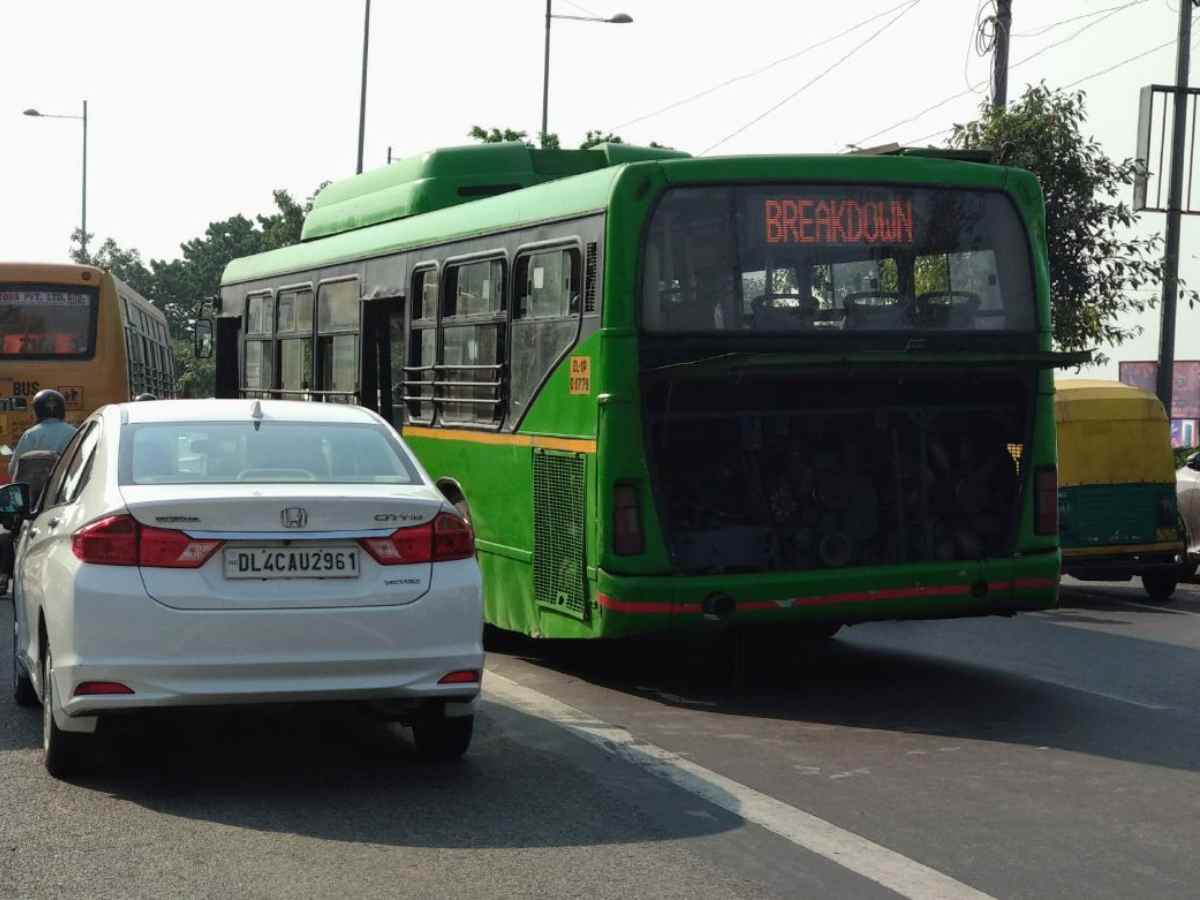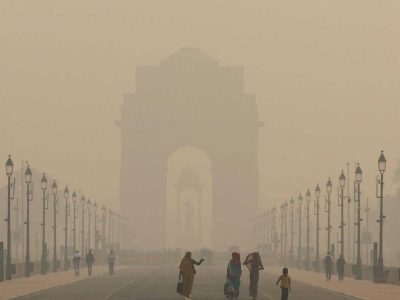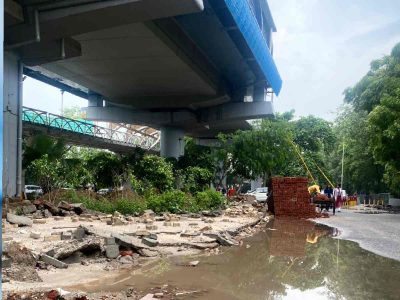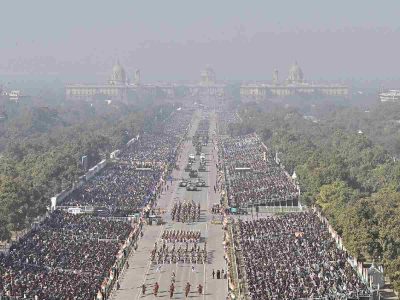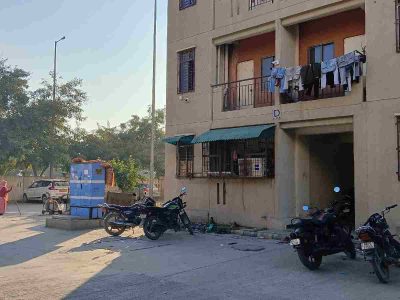Delhi bus breakdown: At least 370 Delhi Transport Corporation (DTC) buses in the national capital suffered breakdowns per day this year.
According to a Right to Information (RTI) reply filed by Patriot, there were 1,01,267 bus breakdown incidents reported between January and September 2024, with DTC operating 3,734 buses daily.
“From January to September 2024, Delhi experienced a consistent increase in bus breakdowns. Key months include January with 8,194 breakdowns, and a peak in August with 14,072 incidents, indicating an escalating trend,” the data read.
“The rise in breakdowns became more pronounced starting in April, with a total of 9,498 incidents. May also saw a substantial surge in the number of such incidents, with 13,393 buses suffering breakdowns. The figures began to soar towards mid-year. By June, breakdowns reached 12,921,” it read.
Also read: DTC set to retire 2,624 CNG buses by Feb 26
“In July, the number of break downs was recorded at 13,097, with a daily average of 422 breakdowns, maintaining the trend of frequent incidents. The trend peaked further in August, with 14,072 breakdowns, which averages to 469 breakdowns per day. The highest point of the year so far came in September, when 13,213 breakdowns were reported, averaging about 426 breakdowns daily,” it further stated.
| Month | Number of Breakdowns |
| January | 8,194 |
| February | 8,166 |
| March | 8,716 |
| April | 9,498 |
| May | 13,393 |
| June | 12,921 |
| July | 13,094 |
| August | 14,072 |
| September | 13,213 |
| Total | 101,267 |
166% increase in bus breakdowns
From January to June 2024, Delhi recorded a total of 60,888 bus break downs, showing a significant increase compared to the 22,868 breakdowns reported during the same period in 2023, which is a surge of 166%. The monthly breakdown for 2024 shows a consistent rise, starting with 8,194 in January and gradually increasing to 12,921 in June. In contrast, 2023 numbers were much lower, with 3,029 in January and 3,145 in June. The average number of daily breakdowns also surged dramatically. In 2024, the national capital witnessed 334 such incidents of breakdowns on a daily basis compared to just 126 in 2023.
Traffic chaos
According to the Joint Commissioner of Traffic, Kape Kaming, the frequency of DTC buses breaking down has caused immense problems in the traffic management of the national capital.
“The actual issue is that these breakdowns happen at random and there’s no way to predict them. With the frequency of breakdowns increasing, the traffic police are left with multiple congestion spots to manage,” Kaming added.
DTC reaction
When Patriot contacted the Transport Department, officials attributed frequent breakdowns to the ageing fleet of CNG buses.
Among the total buses in the DTC fleet, nearly half operate on CNG and are over a decade old.
A DTC official explained, “These buses have surpassed their intended lifespan and are now operating on extended use, leading to frequent breakdowns.”
Another official noted, “We can not retire buses immediately after they reach 10 years of age due to high passenger demand and delays in acquiring replacements, particu larly electric buses. This leaves us with no choice but to continue using the ageing fleet.”
According to a senior Transport Department official, the CNG buses that are nearing the end of their operational lifespan occasionally face issues on the road.
“To address such situations, a WhatsApp group has been created, comprising traffic personnel, mechanics, and trained drivers with repair skills. When a breakdown is reported, mechanics from nearby bus depots are immediately dis patched to the location. In nearly 90% of the cases, the issues are resolved on-site by these first responders. However, in the event of a major breakdown, a rescue team equipped with a crane is deployed to remove the bus from the road,” the official explained.
Plight of drivers
The bus drivers in the national capital are frustrated and disappointed with the breakdowns, saying that they do not have the time to eat and freshen up, as these issues take a whole day to get resolved. Many drivers are left waiting for hours without access to basic amenities, such as food and toilets, which significantly impacts their physical health and mental well-being. The constant uncertainty and lack of support contribute to a stressful work environment, leaving drivers feeling undervalued and exhausted.
Satyawati, a woman driver in the Central Workshop (OKD) depot, said, “The buses break down more frequently these days as the DTC does not conduct regular maintenance checks. These buses break down anywhere in the city, compel ling us to stay near the vehicle. There is no facility for the drivers to eat, and no toilets are available nearby.”
“The condition of the buses is already poor, and the DTC is managing these buses only. Sometimes steering wheels fail, brakes fail, and the engine loses pressure, putting lives at risk, but the government covers it up. They do not even do the necessary checkups of the vehicles,” she said.
“We get Rs 712 per day and also receive an incentive if we complete the duty successfully. However, due to the breakdowns, we incur a loss of Rs 6,000 monthly as we do not get the incentives of Rs 100 for completing the ride and Rs 100 for the additional kilometres we drive. Rs 6,000 is a significant amount for someone from a poor family. The government should at least check the brakes and steering of the vehicles,” Satyawati added.
Lata, another bus driver, also claimed that the buses were in terrible condition.
“The steering wheel does not work properly in several instances, and brakes fail more often, following which the driver has to face multiple hardships as scores of people’s lives are at stake. But the officers seem least interested in the complaints of the drivers. The DTC officials do not take the complaints of the drivers seriously until the bus breaks down,” Lata asserted.
Also read: Limited charging points, rising costs leave e-rickshaw drivers helpless
The sorry tale of commuters
The daily commuters in the nation al capital face several hardships due to these recurring bus breakdowns, including reaching late to work, being compelled to stand on the road in the life-threatening air pollution in the city, and others.
Suresh Kumar, 36, a daily com muter in Delhi and an employee of a private company, said, “The bus network of the national capital has collapsed, with breakdowns halting journeys every week. It has become a major headache, and we just hope the vehicle doesn’t break down so we can reach our destination on time.”
“I have been late several times due to this, and my boss told me to find a solution, like buying my own vehicle or resigning, as being late cannot keep happening,” he said.
Savita Devi, residing in Angoori Bagh, who works as a house help, travels from Red Fort to Daryaganj on a regular basis, claiming that due to the frequent vehicle breakdowns, she is compelled to walk to work in this hazardous environment of Delhi.
“I use the bus as it is free for women commuters. However, the condition of the buses is getting worse with each passing day. It breaks down at least four to five times a month, so I am compelled to cover the rest of the distance on foot. The air of Delhi has become hazardous, and I already suffer from respiratory issues, which is worsening my health due to this issue. I have asked my husband to buy a motorcycle so that I don’t have to face this problem again,” Savita added.
Surge in private vehicles
Anumita Chaudhary, Executive Director of Research & Advocacy, Centre for Science and Environment (CSE), said, “As per the Supreme Court’s directions, the national cap ital should have a total of 11,000 buses to meet the requirements of commuters. However, the fleet of the DTC has been drastically reduced in the past years as the old buses were scrapped, but new ones were not added to the fleet.”
“The pollution in the capital is rising year by year, and the bus fleet is getting reduced, causing trouble for daily commuters, while breakdowns are one of the major factors due to which people are opting for private vehicles. Delhi – which is also the national capital – suffers a pollution crisis every year, making it difficult for residents to breathe as the air becomes poisonous,” she said.
“The Delhi government should ensure that the public transport infrastructure is fully equipped with well-maintained buses to tackle this crisis and cater to the people of the city,” she added.
“The frequent bus breakdowns taking place in the national capital is a matter of shame for the city. The Delhi Government should conduct proper inspections of all the buses in the fleet and get them repaired so that the transport infrastructure can help the city combat the pollution crisis,” the Executive Director of Research & Advocacy, CSE, added.
Expert’s view
Haroon Yusuf, Senior Congress leader and Ex-Transport Minister of Delhi, blamed the Aam Aadmi Party (AAP) for the worsening condition of the buses and frequent breakdowns, say ing that no one is conducting inspections to check the vehicles before they leave the depot.
“The rising number of bus break downs in the national capital is entirely the fault of the AAP and its ministers. They have stopped con ducting inspections to check the health of the vehicles to avoid the hardships faced by commuters,” Yusuf said.
When asked about the sudden rise in breakdowns during the peak summer season, the Congress lead er said that the weather has nothing to do with the bus breakdowns.
“This issue only arises because all the buses in the fleet of the Transport Department are overaged, and the maintenance of the vehicles is not being conducted on time. Moreover, it is the duty of the Transport Department to check the health of the vehicles before they leave the depot. Due to the frequent break downs, scores of people suffer on a regular basis in the national capital. AAP has completely collapsed the transport infrastructure of Delhi,” the Ex-Transport Minister added.
A former IAS officer, closely associated with the Transport Department, speaking on the condition of anonymity, said that the fleet of DTC buses in the capital is overaged, which has drastically increased the frequency of vehicle breakdowns.
He explained that during summer, heavy vehicle engines tend to over-heat, leading to more frequent mechanical failures, while winter temperatures help the engines cool down more effectively.
Informing about the measures that the government can take to improve the situation of the buses, he claimed that daily inspection of the buses before they leave the depot can be done to check the status of the vehicles in order to avoid unnecessary breakdowns.

